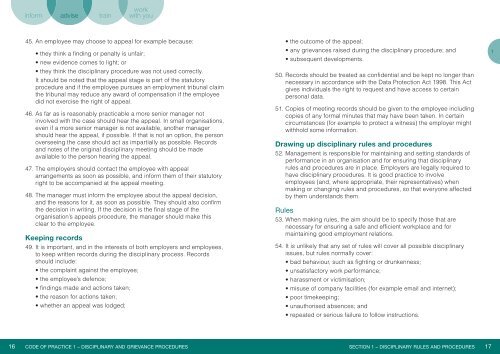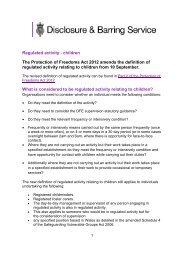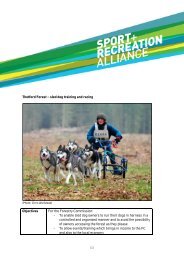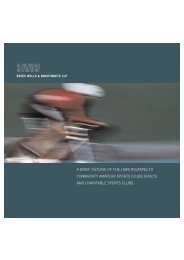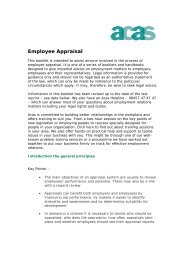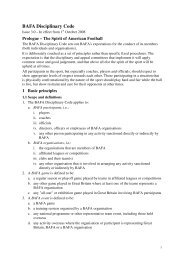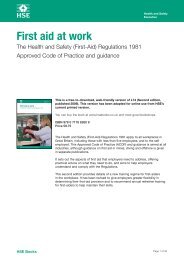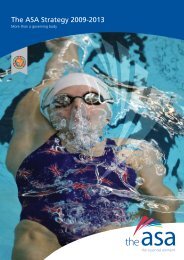Disciplinary & Grievance Procedures - Acas
Disciplinary & Grievance Procedures - Acas
Disciplinary & Grievance Procedures - Acas
You also want an ePaper? Increase the reach of your titles
YUMPU automatically turns print PDFs into web optimized ePapers that Google loves.
45. An employee may choose to appeal for example because:• they think a finding or penalty is unfair;• new evidence comes to light; or• they think the disciplinary procedure was not used correctly.It should be noted that the appeal stage is part of the statutoryprocedure and if the employee pursues an employment tribunal claimthe tribunal may reduce any award of compensation if the employeedid not exercise the right of appeal.46. As far as is reasonably practicable a more senior manager notinvolved with the case should hear the appeal. In small organisations,even if a more senior manager is not available, another managershould hear the appeal, if possible. If that is not an option, the personoverseeing the case should act as impartially as possible. Recordsand notes of the original disciplinary meeting should be madeavailable to the person hearing the appeal.47. The employers should contact the employee with appealarrangements as soon as possible, and inform them of their statutoryright to be accompanied at the appeal meeting.48. The manager must inform the employee about the appeal decision,and the reasons for it, as soon as possible. They should also confirmthe decision in writing. If the decision is the final stage of theorganisation’s appeals procedure, the manager should make thisclear to the employee.Keeping records49. It is important, and in the interests of both employers and employees,to keep written records during the disciplinary process. Recordsshould include:• the complaint against the employee;• the employee’s defence;• findings made and actions taken;• the reason for actions taken;• whether an appeal was lodged;• the outcome of the appeal;• any grievances raised during the disciplinary procedure; and• subsequent developments.50. Records should be treated as confidential and be kept no longer thannecessary in accordance with the Data Protection Act 1998. This Actgives individuals the right to request and have access to certainpersonal data.51. Copies of meeting records should be given to the employee includingcopies of any formal minutes that may have been taken. In certaincircumstances (for example to protect a witness) the employer mightwithhold some information.Drawing up disciplinary rules and procedures52. Management is responsible for maintaining and setting standards ofperformance in an organisation and for ensuring that disciplinaryrules and procedures are in place. Employers are legally required tohave disciplinary procedures. It is good practice to involveemployees (and, where appropriate, their representatives) whenmaking or changing rules and procedures, so that everyone affectedby them understands them.Rules53. When making rules, the aim should be to specify those that arenecessary for ensuring a safe and efficient workplace and formaintaining good employment relations.54. It is unlikely that any set of rules will cover all possible disciplinaryissues, but rules normally cover:• bad behaviour, such as fighting or drunkenness;• unsatisfactory work performance;• harassment or victimisation;• misuse of company facilities (for example email and internet);• poor timekeeping;• unauthorised absences; and• repeated or serious failure to follow instructions.116 CODE OF PRACTICE 1 – DISCIPLINARY AND GRIEVANCE PROCEDURES SECTION 1 – DISCIPLINARY RULES AND PROCEDURES 17


